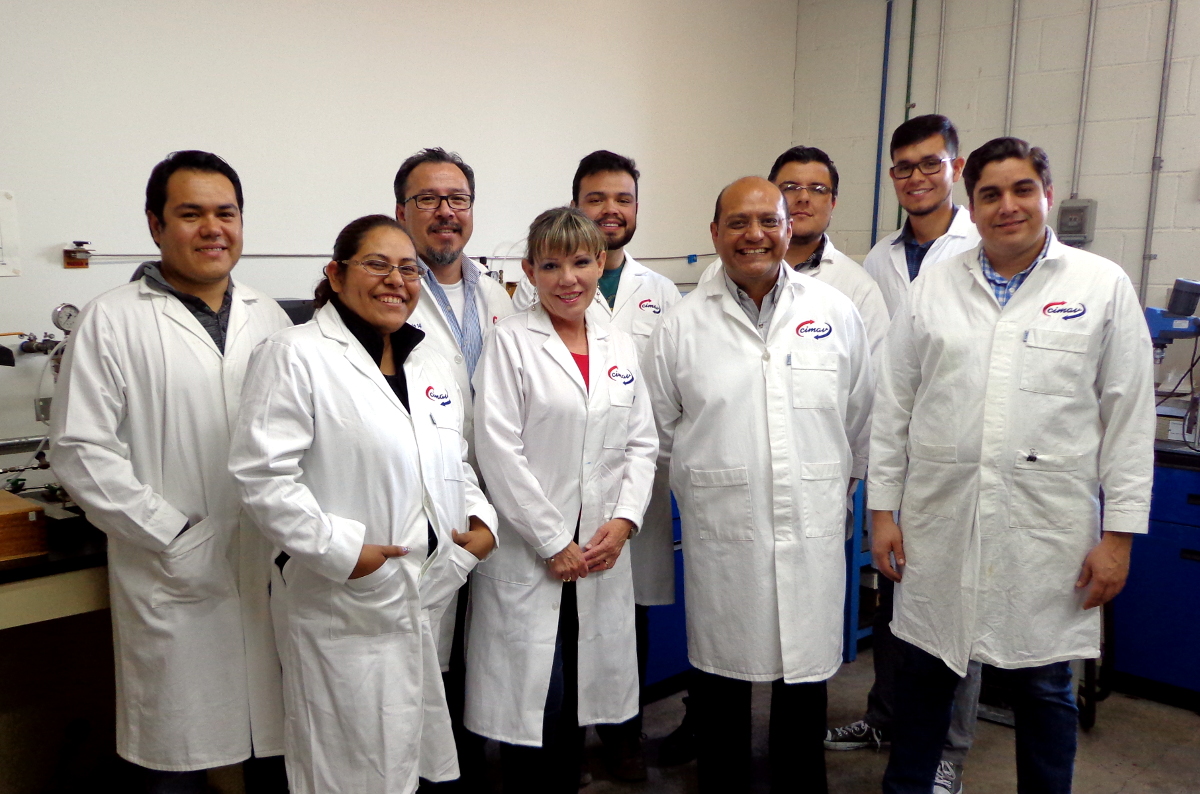Hydrogen Thermochemistry

Hydrogen will be the fuel in a near future, the world trends are focused on seeking alternatives that come from renewable and clean sources with the objective of depending less on fossil fuels. The use of clean energy sources is an irreversible process and it is important that Mexico promotes work aimed at exploiting the generation of this combustible gas.
For instance, big automobile companies such as Toyota, Chevrolet and Ford are betting on the production of vehicles that use hydrogen cells as fuel, which is a new world vison since these have a higher efficiency than gasoline combustion motors.
In Cimav a group of researchers developed sodium zirconate, a synthetic material with the capacity of making hydrogen production more efficient and less contaminant, since it absorbs carbon dioxide (CO2). Through a chemical reaction, sodium zirconate transforms carbon dioxide from gas to solid state, turning it into a non-contaminant compound. This chemical reaction can be performed using high temperatures through thermochemistry.
Sodium zirconate is a cheaper material and has a longer life than commercial synthetics. In addition to this it is superior to Japanese materials and better than natural materials. Sodium zirconate is patented in Mexico by Cimav.
One of the main tasks of this working team is developing materials that help capture carbon dioxide in the processes where energy is generated.
Among other lines of research this working area has the knowledge for:
- Thermochemistry in the capture of carbon dioxide (CO2)
- Thermochemistry in hydrogen production with CO2 capture
- Thermochemistry in metal oxides to produce synthesis gas
It is important to highlight that the researchers in this area carry out theoretical studies before going to the laboratory, in order to support any kind of experimental research activity. They test the theoretical, experimental and process parts.
The knowledge generated may also be applied to develop filters that may be positioned in industries with the purpose of capturing the carbon dioxide they emit. Likewise these works have allowed for the development of special filters for catalytic converters in the automobile industry with the aim of absorbing gasoline sulfur.
Thanks to the materials developed by Cimav these filters extend the life of catalytic converters, up to double.
Cimav’s thermochemistry group has the scientific knowledge to address the national and international industry requirements, as well as the highest academic standards in teaching and research.
- Thermodynamic simulation of materials and processes
- Kinetic modeling of chemical reactions
- Simulation of chemical processes
- Biofuels
